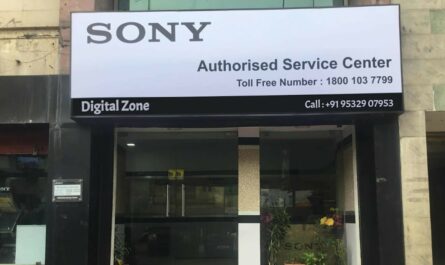Starting your retail business is thrilling, but it can be stressful. For example, choosing the type of fabric for your apparel is one of the most challenging early decisions. With several different materials to choose from, how do you know which one is best for your brand?
Choosing a cheap fabric, like rayon, can be tempting to cut costs. However, don’t do this if you’re planning on printing your brand and graphics on apparel like hoodies, tees, and joggers. Cotton and polyester fabrics are your best bet if you want a versatile, durable fabric that elevates your brand.
So, what is the best fabric for wholesale clothing? Here is a breakdown of four popular materials in wholesale clothing: cotton, polyester, poly fleece, and poly cotton.
What is Cotton?
Cotton is a natural fiber. It has been used in clothing for thousands of years and is still strong. It’s a popular fabric because it is durable and inexpensive to produce.
Cotton can be incredibly soft. Airlume combed, ring-spun cotton is the highest quality cotton you can get on the wholesale market. Premium wholesale products, like Bella + Canvas hoodies, use Airlume. Cotton fabric is a good option if you’re catering to customers who value quality.
Cotton Advantages for Brands
- Great for DTG and screenprinting: 100% cotton absorbs ink very well. The fabric allows for crisp lines and lots of detail in your prints.
- Breathable: Cotton is more breathable than synthetic fibers. It’s a comfortable fabric for summer tops and tees. It’s also a hypoallergenic fabric.
- Sustainable: Because cotton is an all-natural fiber, it contains no plastic. It’s pretty easy to grow and harvest, so it doesn’t use as much energy as synthetic fibers. As a result, it’s an excellent fabric for eco-minded brands.
Cotton Disadvantages for Brands
- Doesn’t dry quickly: Cotton absorbs water easily, so it can take a while to dry. It’s not an excellent choice for activewear or outerwear.
- Shrinks quickly: You want wholesale clothing that will fit your customers true to size. Cotton quickly shrinks when washed in hot water. Keep that in mind when choosing your wholesale products.
What is Polyester?
Polyester is an artificial synthetic fabric made of petroleum. Because polyester is a form of plastic, it’s strong, flexible, and wrinkle-resistant. It’s the most widely-used fabric in the world for these very reasons. In addition, recycled polyester has become more ubiquitous in recent years to make the material more eco-friendly.
Polyester Advantages for Brands
- Cheap: Polyester is mass-produced. It costs manufacturers very little, so buying the fabric wholesale is highly cost-effective for retail businesses.
- Moisture-resistant: It’s a beautiful fabric for things like leggings, shorts, and running shirts because the fibers don’t absorb moisture, a massive plus if you sell athleisure or athletic wear.
- Absorbs dyes: Polyester fibers take on stains quickly, making them a great option if you want rich, vibrant colors. The fabric also doesn’t fade, so your products will look fresh and new for a while after customers buy them.
Polyester Disadvantages for Brands
- Unsustainable: Polyester is the most widely used fabric globally and the most significant fashion polluter. It’s not biodegradable and sheds microfibers every time you wash. Polyester isn’t a top choice if you want to appeal to eco-conscious shoppers.
- Hard to print on: 100% polyester is one of the most challenging fabrics for patterns. DTG printing requires a lot of heat, which can ruin the fabric. Dye migration is also a common problem.
What is a Poly Cotton Blend?
Poly cotton is a fabric blend of cotton and polyester. The combination of natural and synthetic fibers makes this fabric popular among retailers and consumers. It’s a great fabric because it has all the advantages of cotton, like being soft and flexible, but with the durability of polyester.
Poly Cotton Advantages for Brands
- Great for printing: Poly cotton blends are great for screen printing and DTG printing. Choose a fabric with more cotton, such as an 80/20 blend, to get the best results.
- Durable: Poly cotton is breathable and strong. It’s a versatile fabric that is wrinkle-resistant and slightly stretchy, making it an excellent choice for many streetwear brands.
- Soft feel: The quality of poly cotton is undeniable. Wholesale clothing made with poly cotton fabric has a soft, luxurious feel that customers love. It’s an excellent fabric for casual hoodies, long-sleeve tees, and pullover sweaters.
Poly Cotton Disadvantages for Brands
- Sensitive to heat: The polyester blend in the cotton makes the fabric sensitive to high temperatures, making any printing process with high heat, like transfer printing, difficult.
- Not Moisture Resistant: Poly cotton may have polyester, but that doesn’t make it moisture-wicking. Poly cotton can be a hot fabric because it absorbs heat and isn’t sweat-resistant. It’s not the best choice if your brand focuses on clothing for the outdoors and hiking.
What is Poly Fleece?
Fleece comprises various fabric types, but poly fleece is the most popular. Poly fleece is soft, durable, and warm, making it the perfect fabric for cozy outerwear. It’s also breathable and moisture-wicking, so it’s a favorite among athletic and streetwear brands.
Poly Fleece Advantages for Brands
- Great for printing: Poly fleece is one of the most accessible fabrics for printing, especially if you’re starting. Plenty of wholesale poly fleece products, like the Bella + Canvas sponge fleece pullover, are designed for easy printing with plastisol and water-based inks.
- Profitable: Fleece is a cheap fabric to produce, and retailers can sell it to consumers for a much higher price because of its popularity and quality. It’s a great fabric option for wholesale hoodies and other high-price streetwear.
- Fade-resistant: Poly fleece hardly ever fades. Your hoodies will stay fluffy, rich in color, and comfy. Create high-quality products that will last customers for years and keep them coming back for more.
Poly Fleece Disadvantages for Brands
- Not eco-friendly: Regularly produced poly fleece isn’t sustainable. It takes a lot of plastic to create, and it releases microplastics. More manufacturers are producing poly fleece from recycled plastic bottles, but this method still isn’t commonplace.
- Not breathable: Fleece is a fuzzy, cozy fabric. It’s not the best choice for lightweight clothing. If you’re looking for a dress for a breathable summer collection, go with cotton.


